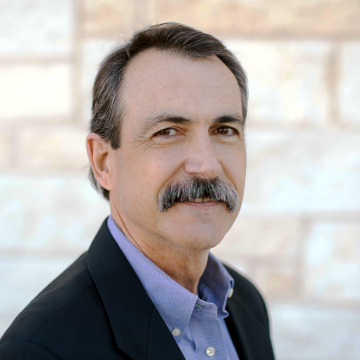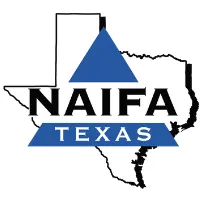CONTACT:


Reverse Mortgages
How a Reverse Mortgage Works
The most commmon example of a Reverse Mortgage is a loan insured by the Federal Housing Administration (FHA), which is also called a (HECM) Home-Equity Conversion Mortgage. It allows a homeowner to access a portion of their home equity and turn it into usable cash. Borrowers can choose a Reverse Mortgage as long as they meet the loan terms and maintain their property and pay their homeowner's insurance, property taxes and homeowner's association dues.
Reverse Mortgage loans have helped more than one million Americans nationwide access their monitized home equity as a way of incorporating housing wealth into their retirement strategy. A HECM (Home Equity Conversion Mortgage) has been improved over the years so that today it safely and securely meets the needs of senior retirees.
TYPES OF REVERSE MORTGAGE LOANS
There are two types of Reverse Mortgage Loans available to seniors today: (1) The first is an FHA-Insured HECM loan (Home Equity Conversion Mortgage) available to seniors who own a home valued up to $1,089,300. (2) The Second type of Reverse Mortgage is call a jumbo or proprietary reverse mortgage and can be used for loans on homes with higher values up to approximately $4,000,000.
We are the Southwests' premier Retirement Mortgage Specialists and are here to assist you as you explore your options and whether a reverse mortgage loan is right for you. Our goal is that as you learn more about the reverse mortgage loan you have all the information you need to make the best decision for you and your family.

WHO QUALIFIES FOR A REVERSE MORTGAGE?
For an FHA HECM - reverse mortgage loan - here are the basic qualification requirements:
Both borrowers be signators to the Reverse Mortgage Loan and both must be a minimum of 62 years old at the time of closing (unless borrowers live in Oklahoma or Tennessee - where only one borrower is required as a signator to the Reverse Mortgage loan) *.
The Borrowers must maintain the home as their primary residence and live in it a minimum of 6 months out of every year.
Borrower's must meet a financial assessment to determine their financial capacity and willingness to adhere to the loan obligations, such as maintaining insurance and paying property taxes.
For a Reverse Mortgage Refinance, there needs to generally be enough equity available to be monitized through the Reverse Mortgage so as to make the loan financial beneficial.
* Ken Kennedy and Kenny Hawthorne are licensed to provide Reverse Mortgages in Texas, Oklahoma and Tennessee. Other Reverse Mortgage eligibility rules may apply to other states.
Contact us today for your no obligation reverse mortgage loan evaluation.
KEY FEATURES OF REVERSE MORTGAGE LOANS
Deciding whether a reverse mortgage loan is right for you can be a daunting task, but we are here to hopefully alleviate some confusion and provide you with all the information you need to make the right decision for you and your family.
Some of the key features of the reverse mortgage loan are as follows:
While you will still need to pay property taxes and insurance and maintain the property, no monthly mortgage payments are required.
There are multiple options to convert your home's equity to support your financial goals, such as, receiving monthly payments, receiving a lump sum, or growing a line of credit over time.
Proceeds you receive from a reverse mortgage loan are typically tax free, however, you will need to consult your tax advisor for tax advice.
Borrower protection to help reduce the risk of foreclosure. An example of this is a guideline that limits the amount of equity the borrower can access during the first year of the loan. Also, the borrower/s must demonstrate that they're able to pay property taxes and insurance and maintain the home during the time they have the loan. Furthermore, if a non-borrowing spouse under the age of 62 loses their borrowing spouse or their spouse permanently leaves the home, they will be allowed to remain in the home as long as they comply with the loan terms.
If the borrower/s choose to access their equity via a line of credit, interest only accrues on funds that are used. Funds that are not used will increase over time at the same rate of your loan. This feature allows for growing the amount of cash you have access to should you need or want to access it later in retirement.
The FHA HECM Loan is a non-recourse loan. This means that if your home sells for less than the loan balance, your heirs are not liable for the debt. Only the funds received from the sale of the home can be used to repay the loan.
At the time of application, your home mortgage balance does not have to be paid off to qualify. However, the reverse mortgage loan proceeds you receive must be used to pay off the existing mortgage or liens (if there is a mortgage balance owing). You will continue to hold title to your home subject to the mortgage securing the reverse mortgage loan.
REVERSE MORTGAGE LOAN - HOME ELIGIBILITY
Homes that are eligible for a reverse mortgage loan include single-family homes, detached homes, townhouses, and two-to-four unit properties that are owner-occupied. Condominiums must be FHA-approved for the HECM loan and some manufactured homes are also eligible. Contact us for more details on manufactured home eligibility.

HOW WILL A HECM LOAN AFFECT MY ESTATE AND HOW MUCH WILL BE LEFT TO MY HEIRS?
Once the last surviving borrower dies, sells your home, or no longer resides there as the primary residence, you or your estate is responsible for the repayment of the money you received from the reverse mortgage loan, plus interest and other fees. Any remaining equity belongs to either you or your heirs. A “non-recourse” clause prevents either you or your estate from being responsible for more than the value of your home when the loan is repaid. If the ending loan balance exceeds the home's value, the estate (heirs) can sign a deed in lieu of foreclosure releasing the property or, pay 95% of the home's appraised value, less customary closing costs & real estate commissions.
SHOULD I USE AN ESTATE PLANNING SERVICE TO FIND A REVERSE MORTGAGE LOAN?
HUD advises against using any service that charges a fee (except required HECM counseling) or any service that requests a lender referral fee to obtain a reverse mortgage loan. HUD provides this information free of charge and can direct you to HUD-approved housing agencies that offer approved reverse mortgage loan counseling or additional services that are free or have a minimal cost.
There is typically a reverse mortgage loan (HECM) counseling fee that ranges from $150 - $195. If the borrower cannot afford this fee, some counseling agencies will waive the fee for qualified applicants. You can find a HUD-approved housing counseling agency near you by calling 1-800-569-4287 toll free.
WHAT ARE MY OPTIONS FOR RECEIVING HECM LOAN PROCEEDS?
Adjustable interest rate reverse mortgage loan payments can be received in one of five ways:
Tenure: equal monthly payments
Term: equal monthly payments for a fixed period of months as decided by the borrower
Line of Credit: payments made in installments or at various times and in amounts dictated by the borrower(s)
Modified Tenure: monthly payments with a line of credit
Modified Term: monthly payments for a fixed period of months with a line of credit²
WHAT ARE THE DIFFERENCES BETWEEN A HOME EQUITY LINE OF CREDIT AND A REVERSE MORTGAGE LOAN?
Reverse mortgage loans are unique because they allow the borrower to receive loan proceeds that do not require immediate repayment as long as you remain in your home as your primary residence, do not sell your home, at least one borrower lives in the home, you meet the basic income and credit standards, and follow loan guidelines. On the other hand, obtaining a home equity loan (or home equity line of credit or second mortgage) requires that you have sufficient income to cover the debt- plus, you must continue to make monthly principal and interest mortgage payments.
REVERSE MORTGAGE LOANS AND HOME EQUITY CONVERSION MORTGAGES
Necessity is the mother of invention and the first reverse mortgage loan is no exception. Today, many use the terms reverse mortgage loan and HECM or Home Equity Conversion Mortgage interchangeably. But are they the same? Not necessarily. The first reverse mortgage loan was originated in 1961 by Deering Savings & Loan.

In the ensuing years, interest grew in the concept of a ‘reverse mortgage’ loan which allowed the homeowner to defer payments until a later time -usually upon their death. Private lenders stepped into this niche market, however some of these loans relied upon ‘equity-sharing’ schemes in addition to accrued interest on the money borrowed.
Recognizing the increasing need for senior homeowners to preserve their retirement with home equity, Congress began exploring the concept of reverse mortgage loans. In 1969 the first hearing was held in the Senate Committee on Aging to discuss the government’s possible role in such a program. It wasn’t until nearly two decades later, in 1987, that the Home Equity Conversion Mortgage was formalized by Congress as part of an insurance bill.
Today, many still refer to the Home Equity Conversion Mortgage or HECM as a reverse mortgage loan. However, not all reverse mortgage loans are created equal. HECMs are federally-insured and have unique eligibility requirements and guarantees. Private reverse mortgage loans¹ offer access to one’s home equity with no required monthly payments as well, albeit with similar but different terms and conditions.*
The good news is that while only the HECM is insured by the Federal Housing Administration (FHA) and supervised by the Department of Housing and Urban Development (HUD), private reverse mortgage loans are closely monitored by regulators. It is recommended that homeowners thoroughly research their options on which loan may best suit their needs. Costs, features, eligibility rules, insurance, and interest rates should be considered.
HISTORY OF REVERSE MORTGAGE LOANS
The origins and history of reverse mortgage loans reveals a loan product that has evolved dramatically over the last 40 years. The first reverse mortgage loan was written in 1961 by Nelson Haynes of Deering Savings & Loan (Portland, Maine) to Nellie Young, the widow of his high school football coach helping her to stay in her home despite the loss of her husband’s income.
The use of reverse mortgage loans was further developed in the 1970’s with several private banks offering reverse-mortgage-style loans. These programs monitized equity from their home but did not afford the consumer protections of today, particularly the protections provided through FHA Insurance.
In the early 1980’s the U.S. Senate Special Committee on Aging issued a report stating the need for a standardized reverse mortgage loan program. Other committees throughout the mid 80’s cited the need for FHA insurance and uniform lending practices. In late 1987 Congress passed the FHA insurance bill that insures reverse mortgage loans. On February 5, 1988, President Ronald Reagan signed the FHA Reverse Mortgage loan bill into law. In 1989 the first FHA-insured HECM was made to Marjorie Mason of Fairway, Kansas through the James B Nutter Co.
Since 1989 reverse mortgage loans have grown in popularity, especially in the mid to late 1990’s. Despite economic upheaval and forward mortgage lending issues, reverse mortgage loans have continued to grow as a safe, government-insured loan allowing seniors to access a portion of the equity of their homes while not requiring monthly mortgage payments.³
¹For these loan programs we are a Mortgage Broker only, not a mortgage lender or mortgage correspondent lender. We will arrange loans with third-party providers but do not make loans for these programs. We will not make mortgage loan commitments or fund mortgage loans under these programs.
²HECM fixed interest rate mortgages are limited to the Single Disbursement Lump Sum payment option, which is one full draw at loan closing and no future draws. Adjustable interest rate mortgages provide for five, flexible payment options, and allows for future draws. Initial distribution caps will apply.
³There are some circumstances that will cause the loan to mature and the balance to become due and payable. The borrower is still responsible for paying property taxes, homeowner’s insurance and maintaining the property to HUD standards. Failure to do so could make the loan due and payable. Credit is subject to age, income standards, credit history, and property qualifications. Program rates, fees, terms, and conditions are not available in all states and subject to change.
*Borrowers must continue to pay property taxes, homeowner’s insurance, and home maintenance costs.
This advertisement does not constitute financial advice. Please consult a financial advisor regarding your specific situation. Borrowers should seek professional tax advice regarding reverse mortgage loan proceeds.
Contact us today for your FREE reverse mortgage loan consultation.




This material is not provided by, nor was it approved by the Department of Housing & Urban Development (HUD) or by the Federal Housing Administration (FHA). It is not intended to be a substitute for legal, tax or financial advice. Consult with a qualified attorney, accountant or financial advisor for additional legal or tax advice.
*There are some circumstances that will cause the loan to mature and the balance to become due and payable. The borrower(s) must continue to pay for property taxes and insurance and maintain the property to meet HUD standards or risk default. Credit is subject to age, minimum income guidelines, credit history, and property qualifications. Program rates, fees, terms and conditions are not available in all states and subject to change.
Retirement Mortgage Specialists
Kenny Hawthorne |
NMLS #1647665
Ken Kennedy |
NMLS #1627908
Branch Location:
605 S Orchid
White Oak, TX 75693
Phone: 903-235-7114
Powered by OC Home Loans, Inc
NMLS: 1842513
This licensee is performing acts for which a mortgage company license is required. OC Home Loans, Inc., is licensed by the Texas Department of Savings and Mortgage Lending, NMLS: 1842513. Loan approval is not guaranteed and is subject to lender review of information. All loan approvals are conditional and all conditions must be met by borrower. Loan is only approved when lender has issued approval in writing and is subject to the Lender conditions. Specified rates may not be available for all borrowers. Rate subject to change with
market conditions. K2--Financial, LLC is an Equal Opportunity Mortgage Broker/Lender. The services referred to herein are not available to persons located outside the state of Texas.
Corporate Address: 24302 Del Prado Suite B Dana Point, California 92629
Complaint/Recovery Fund Notice: (https://www.sml.texas.gov/wp-content/uploads/2021/07/rmlo_80_200_b_recovery_fund_notice.pdf)
Tyler, Longview, East Texas, Texas
© 2023. All rights reserved.
